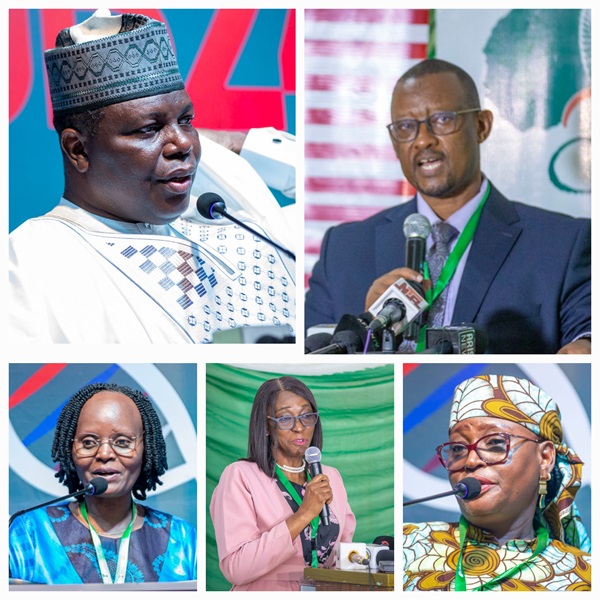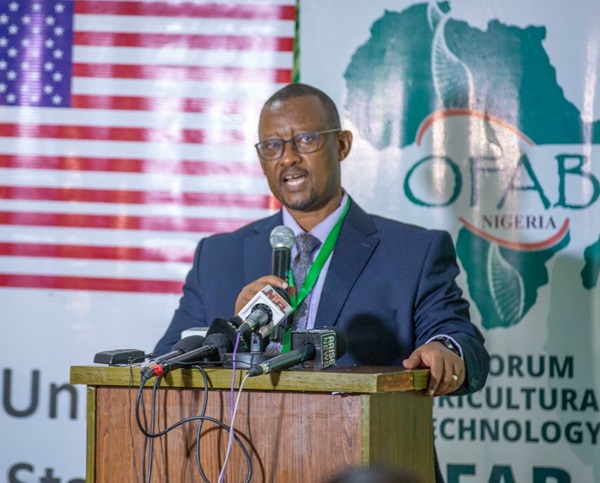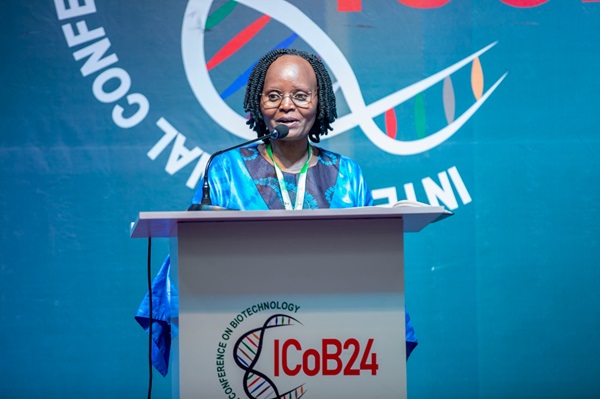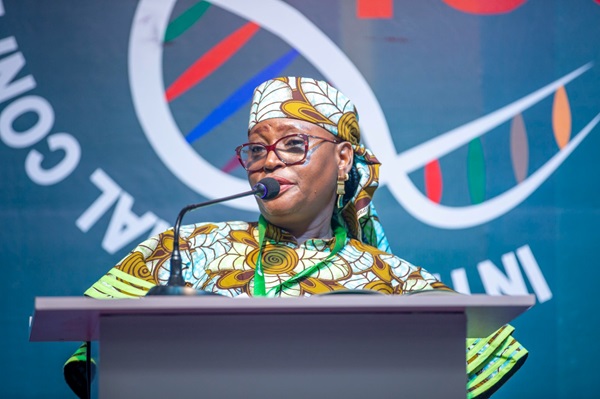
Nigeria just concluded its first, maiden edition of the International Conference on Biotechnology 2024 (ICoB24). The weeklong meeting, themed “Biotechnology As An Engine For Economic Growth,” saw active participation from experts and stakeholders both nationally and internationally.
In this Vox Pop by Nkechi Isaac, participants were asked two key questions: their key takeaways from the conference and how biotechnology can be deployed as an engine to drive economic growth. The excerpts below capture the insights and perspectives shared by various stakeholders.

ICoB24 Provided Platform for Researchers, States, Industry Stakeholders Networking
– Director-general, National Biotechnology Development and Research Agency, Prof. Abdullahi Mustapha
The conference has garnered the attention of almost everybody in the area of biotechnology—from medical, environmental, industrial, agricultural, and genomic sectors. The stakeholders present are now networking. This is the first of its kind, and the network that is happening is impressive. Industries are approaching us, expressing their interest in partnering to deliver research projects to the people. Researchers are also eager to collaborate and see their work translate into practical applications. This product-driven conference is poised to transform the country’s economy.
Our research is translating into products that will significantly impact the agricultural sector. We have stakeholders from USDA, Kenya and many other African countries, as well as state governors, all here to forge partnerships. We aim to unify these diverse entities to develop and deliver research products to the public.
State governors and industry representatives attended the full five-day event, seeking areas of collaboration. Our goal is to demonstrate to the government that biotechnology development is a solution to many pressing issues affecting the country, from industry and environment to medicine and agriculture. We will report the outcomes of this conference to the president through the Minister of Innovation, Science & Technology, advocating biotechnology as a pathway to national development.

Africa Needs National Investments for Biotechnology Development
– Executive director, African Agricultural Technology Foundation, Dr. Canisius Kanangire
This meeting is unique, focusing on biotechnology and its potential to drive development in Nigeria and Africa at large. Sessions covered various topics, from agricultural biotechnology to the biotech industry and medicine.
One key takeaway is the openness among scientists, technology users and policymakers to discuss and find agreements on using these innovations for societal betterment. We need more tools to address current and emerging challenges sustainably. The motivation and commitment here are contagious, inspiring collective efforts to transform our knowledge, skills and research capacity into tangible results for farmers, the pharmaceutical industry and beyond.
However, more investment is crucial. National investments are essential for biotechnology to flourish. We must achieve sovereignty in choosing which technologies to adopt and ensure they serve our needs. Historically, critical areas have relied too heavily on donor funding. African nations need to take responsibility, utilising our treasuries to support these initiatives. While external support is welcome, the primary responsibility for transforming Africa lies with us.
Biotechnology can be a game-changer for economic growth. Historically, food security discussions have focused on fertilisers, mechanisation and pesticides, but biotechnology offers precise, innovative solutions. In agriculture, it can enhance productivity and resilience. In the seed industry, existing biotechnologies like insect resistance and drought tolerance can significantly boost yields.
Biotechnology’s impact extends to health, as seen during the COVID-19 pandemic when vaccines were developed rapidly. This potential for swift, effective solutions highlights biotechnology’s role as a powerful engine for economic development. Just as developed countries leverage biotechnology for food security and health, Africa must harness its potential to drive growth and prosperity.

Proper Understanding of Biotechnology Will Help Us as Regulators
– Director-general, National Biosafety Management Agency, Dr. Agnes Asagbra
“The conference covered diverse topics, from agricultural biotechnology to health, industry, and the environment. Each session was enlightening, and the USDA ‘Sharing is Believing’ side event was particularly exciting. The sessions were rich in content, providing valuable insights that should now be shared widely.
Misinformation and misconceptions about biotechnology are widespread. A proper understanding of biotechnology is crucial for us as regulators. Scientists need to communicate their work clearly, making our regulatory job easier. Advocacy and public education are vital to building trust in biotechnology.
Biotechnology can drive economic growth by empowering farmers with advanced tools and practices, increasing agricultural yields. In health, biotechnology has tackled numerous challenges, such as the development of insulin. Environmental applications include bioremediation. Overall, biotechnology plays a significant role in economic development.

Biotech: We Need Community Of Practice To Tackle Misinformation Monster
– Director, International Service for the Acquisition of Agri-Biotech Applications (ISAAA) Africentre, Dr. Margaret Karembu
The conference highlighted several key points:
1. Africa has immense capacity in developing biotechnology products.
2. Farmers are eager to access these innovations, like insect-resistant cowpea and TELA Maize.
3. Effective communication and public enlightenment are essential to build trust in biotechnology.
The NBMA has made significant efforts to assure farmers and stakeholders of product safety. However, combating misinformation requires a concerted effort from all stakeholders. A community of practice is needed to manage this issue effectively.
Biotechnology can spur economic growth in Africa by leveraging existing capacities, supported by government investment. Addressing priority needs, developing home-grown products and ensuring farmers have timely access to seeds are crucial steps. A robust stewardship mechanism is also essential to ensure the proper use and management of biotech products. With these measures in place, biotechnology can drive significant economic growth in Africa.

Biotechnology, A Powerful Tool, Transformative, Beacon Of Hope
– Director, Agricultural Biotechnology Department, National Biotechnology Research and Development Agency, Dr. Rose Gidado
The conference showcased the willingness of researchers and industry players to collaborate and make research products available to the public. Nigeria is leading other African countries in adopting biotechnology, with tangible products already impacting farmers and increasing yields.
Biotechnology is a powerful, transformative tool with endless possibilities. It can drive sustainability in agriculture, health, food, industry and the environment. It enhances crop yields, improves animal breeding and develops climate-resilient seeds. Biotechnology also contributes to environmental restoration by removing pollutants.
Understanding DNA, the blueprint of life, opens up numerous benefits. Biotechnology has the capacity to drive Nigeria’s economic growth, offering innovative solutions to many of the challenges we face.
The inaugural International Conference on Biotechnology 2024 (ICoB24) provided a unique platform for networking and collaboration among researchers, industry stakeholders and policymakers. It emphasised the importance of biotechnology in driving economic growth across various sectors, from agriculture and health to industry and the environment. The conference highlighted the need for national investments, effective communication and a community of practice to tackle misinformation. With a collective effort and strategic investments, biotechnology holds the potential to transform Nigeria’s economy and improve the quality of life for its people.


